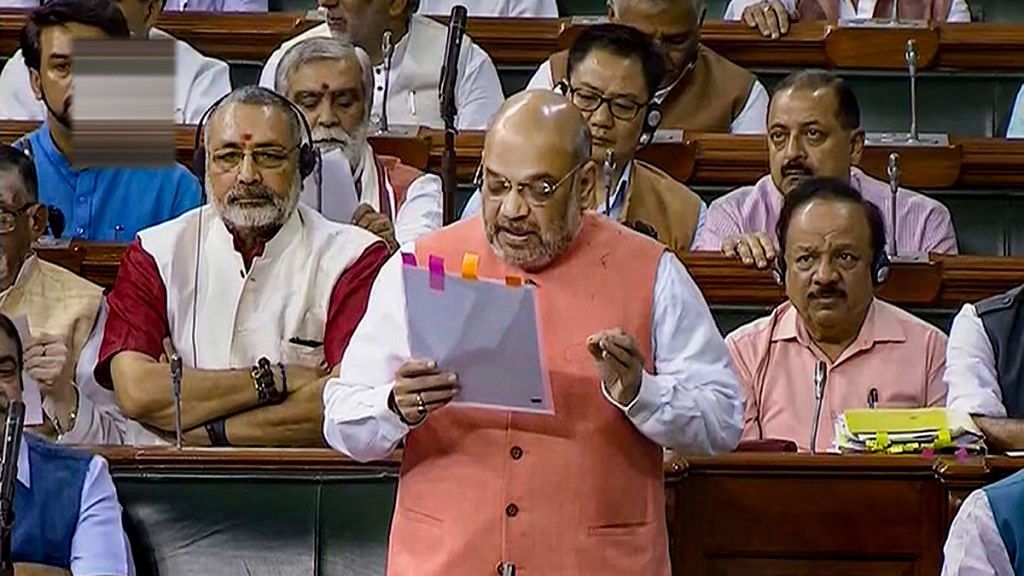New Delhi: Home Minister Amit Shah Tuesday said that every time he mentions Jammu and Kashmir, it also refers to Pakistan-occupied Kashmir (PoK) and the Aksai Chin region.
“I want to put this on record that whenever I have said J&K, it means with PoK and Aksai Chin,” he said. “J&K is an integral part of the Union of India. Kashmir ki seema main PoK bhi aata hai. Jaan de denge iske liye (PoK is also a part of Kashmir. Ready to die for this).”
Shah was speaking after moving a resolution to revoke Article 370 in Jammu and Kashmir and introducing two bills — the J&K Reorganisation Bill 2019 and the J&K Reservation (second amendment) Bill 2019 — in the Lok Sabha.
The resolution removing the special status of the state under Article 370 was approved by the Rajya Sabha Monday.
Shah, while introducing the resolution and the two bills, reiterated that Jammu and Kashmir is an integral part of India. He further said this would mean that the Parliament has all the right to make laws that would be applicable to the state just like it is in any part of the country.
“I am proud to announce that this proposal and bills will create history,” the home minister said. “It is extremely important for the integrity of India as a nation. This will join J&K with India for centuries to come. Parliament will now have the right to make laws in Jammu and Kashmir.”
Also read: How erasing Article 370 became an article of faith for RSS and BJP
Completely constitutional
Stating that the government’s move is legally valid and constitutional, Shah explained that the presidential order passed under section 370 1 (D) says that all laws will now apply to Jammu and Kashmir.
He further said that according to Article 370 (3), the President of India, by public notification, can withdraw the special status granted to the state. This, the President can do with the recommendation of the constituent assembly, he added.
The home minister added that according to Articles 366, 370 1(D), the constituent assembly has now become the state legislative assembly, so before the order was signed by the President, the legislative assembly was duly consulted, which makes the move constitutional.
“This provision was also used by the Congress in 1952 and 1965 when they replaced the Maharaja with Sadre Riyasat and then the Governor,” Shah said.
On bifurcation
On bifurcation of the state, with Ladakh to be a union territory without an assembly and Jammu and Kashmir a UT with an assembly, Shah said it is for the “betterment of Kashmiris”.
“For long Ladakh wanted to be a UT. So, we are creating two — one in Ladakh (hill council to continue) and another in J&K,” he said. “J&K will have an assembly, MLAs, a CM who will be elected democratically.”
Also read: Modi’s Kashmir move is biggest test for Indian democracy – and for the silent liberals
